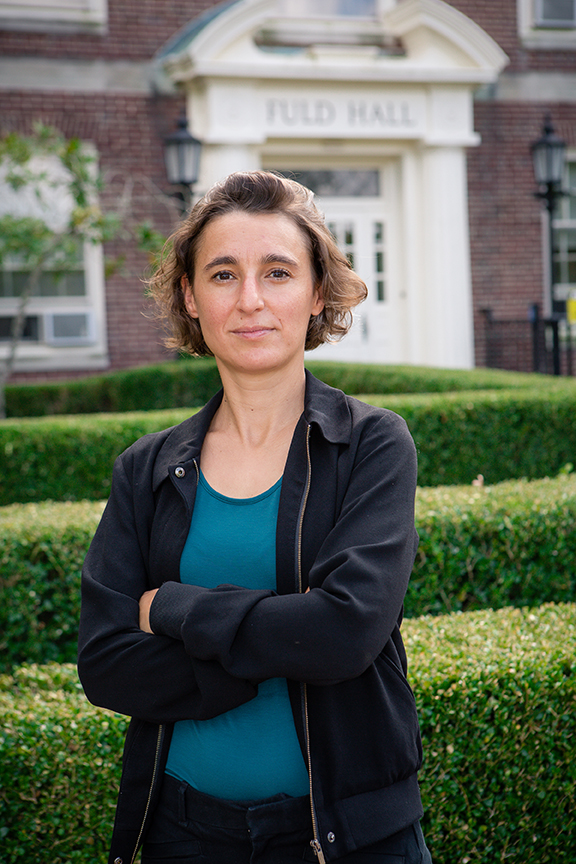
I am Full Professor of political science at the University of Paris Nanterre and a researcher at the Institute for Social Sciences of Politics (ISP) – a CNRS research center.
After receiving my PhD in Political Science at Sciences Po in 2009, I was a Marie Skłodowska-Curie post-doctoral researcher at the University of California, Berkeley. In 2021, I was awarded a fellowship of the Institute for Advanced Study in Princeton.
My research is inscribed in the field of International Political Sociology. Exploring Africa and the Global South as sites of social experimentation and theoretical innovation, I have written about war, gender, and sexual violence as well as identity and technologies.
My first book Living by the Gun in Chad (Zed Books 2016) establishes an agenda for thinking about the place of violence in both politics and society. There is a long tradition, both in political science and in the social sciences more generally, of posing peace as the default situation and equating violence with disruption of the social order. I challenge this conventional idea by showing why war is part of the modern, everyday framework of politics in Chad – as well as in so many other countries around the world. I theorize armed violence as a practical occupation, or a non-institutionalized profession. Armed violence is much more than just a political strategy: where the state and politics have been militarized, the handling of arms becomes a way of life for a section of the male population. I examine the historically strong reciprocal relationship between militarism and masculinity, and the resulting marginalization of women in politics. For this research, I was awarded the 2017 CNRS Bronze Medal, the highest national distinction for early-career scholars.
In my follow-up research, I have delved further into the postcolonial dimension of French foreign policy in the Sahel. The irony here is that, seen from Chad, the former colonial power also has a violent and conflict-ridden history too. France is much more than just an external actor that would only intervene to fix endogenous problems: it is a constant in the local politico-military landscape.
My most recent research (supported by the Institut Universitaire de France) addresses the contemporary political and technological revolution in identity documentation in Africa. Undoubtedly boosted by security and anti-migration policies, biometric and digital identification systems are now also deployed in the name of democracy, development and women’s empowerment. I study the corporate interests as well as the diverse ideas, voices, and policies that have shaped this technological “solution” to the perceived failures of the state in Africa. This research raises broader questions about the invention of markets, the social construction of technological promise and Africa’s place in the global politics of surveillance.
At the crossroads of research and mentoring, I have also written about gender, safety, and ethics in the field, with a focus on sexual violence. In an article published in Critique Internationale, I argue that as women, we need to come up with fresh ways of thinking about and doing fieldwork – a way that allows us to successfully navigate paternalistic injunctions to be careful and denial of the difficulties we face. I also call for challenging the persistent norms in the field of conflict studies – sexism, fetishization of dangerous fieldwork, idealization of ethnographic immersion – that can put researchers, especially women and minorities, at risk.
Beyond my daytime job, I am on the editorial board of Cultures & Conflits, an International Political Sociology journal published in Paris.
https://orcid.org/0009-0002-1136-0784